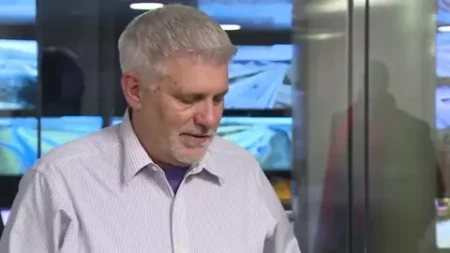The Israeli government has approved a proposal to create a new administrative body that will oversee the voluntary emigration of Gaza residents to third countries. The decision, made by Israel’s Political-Security Cabinet, follows a proposal from Defense Minister Israel Katz and aligns with a vision previously endorsed by U.S. President Donald Trump.
New Administration to Facilitate Safe Emigration
The newly approved Voluntary Transition Administration will be responsible for coordinating and enabling safe emigration for Gaza residents who express a desire to relocate. The administration will ensure compliance with Israeli and international laws and will work to establish safe transit corridors by land, sea, and air.
The initiative includes securing designated pedestrian crossings in Gaza, coordinating with international organizations, and setting up necessary infrastructure to facilitate smooth passage to destination countries. The administration will function under the authority of the Minister of Defense and will work closely with other government ministries to implement the program effectively.
Israel’s Commitment to Facilitating Voluntary Relocation
Defense Minister Israel Katz emphasized the importance of this initiative, stating: “We are utilizing all available means to implement the vision of the U.S. President. Any Gaza resident who wishes to voluntarily relocate to a third country will be given the opportunity to do so in a safe and structured manner.”
The administration’s primary objectives include:
- Establishing secure transit routes for emigrants.
- Facilitating coordination with international agencies.
- Ensuring safe movement through designated exit points.
- Providing logistical and infrastructural support for emigration.
International Coordination and Legal Framework
The transition process will involve international cooperation with relevant countries willing to accept emigrants from Gaza. Israeli officials are expected to engage in diplomatic discussions with governments and humanitarian organizations to ensure compliance with international human rights and refugee policies.
While the plan has gained approval from the Israeli government, it remains unclear how many countries will participate in receiving Gaza residents. The administration is expected to work within United Nations guidelines and in alignment with global migration frameworks.
Reactions and Implications
The decision has sparked varied responses from political and human rights groups. Some Israeli officials argue that offering voluntary relocation aligns with broader security goals and provides an option for Gaza residents seeking a fresh start. However, Palestinian representatives have voiced concerns about potential coercion, arguing that residents should not feel pressured to leave their homeland.
International organizations, including the UN and human rights groups, have yet to formally respond to Israel’s new initiative. Analysts suggest that the success of this program will depend on international backing and logistical execution.
The Voluntary Transition Administration is expected to begin operations soon, with initial steps focusing on setting up necessary transit infrastructure and engaging with potential host nations. While this move introduces a structured pathway for emigration, its long-term implications for Gaza’s population and regional stability remain to be seen.







